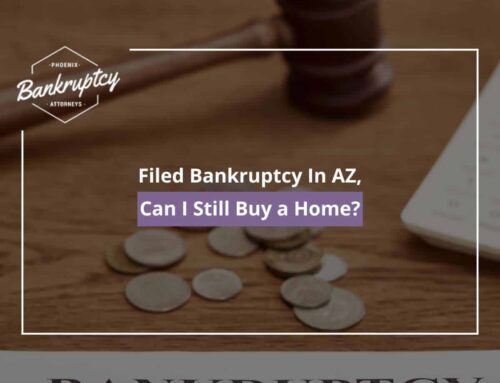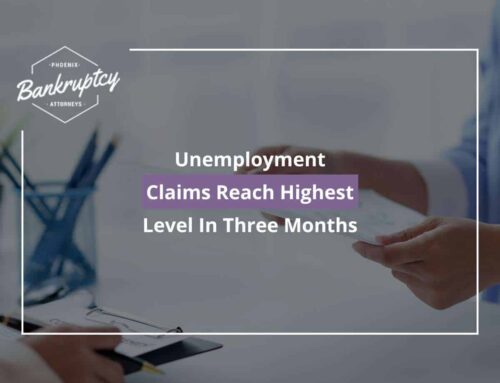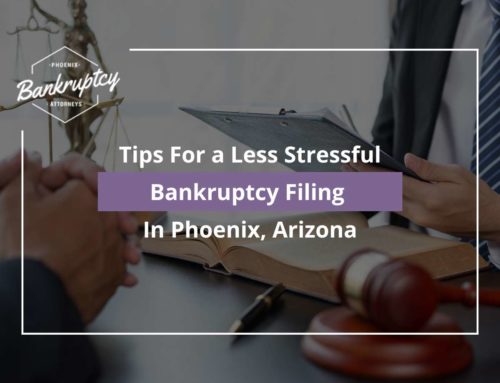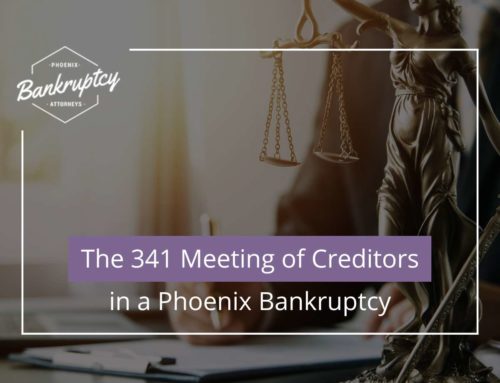Our Phoenix Bankruptcy Attorneys Discuss The Pros & Cons Of Filing For Chapter 7 Bankruptcy Protection
Our Phoenix Bankruptcy Lawyers discuss the benefits and drawbacks of filing for Chapter 7 bankruptcy protection in Phoenix and Maricopa County. Our experienced bankruptcy lawyers and debt relief team have helped thousands of people in Phoenix, Maricopa County, and throughout Arizona file for bankruptcy and seek debt relief.
Bankruptcy can be a powerful tool to help you address a debt problem that is getting out of control. Chapter 7 is many people’s first option when it comes to bankruptcy- after all, it discharges unsecured debts in a relatively fast and low-cost legal procedure. However, certain factors about your financial situation, like the value of your property and your debt’s structure, can make Chapter 13 or a method besides bankruptcy a better option for your debt relief. Before making your decision about filing bankruptcy, you should educate yourself about the benefits and limitations of Chapter 7 bankruptcy.
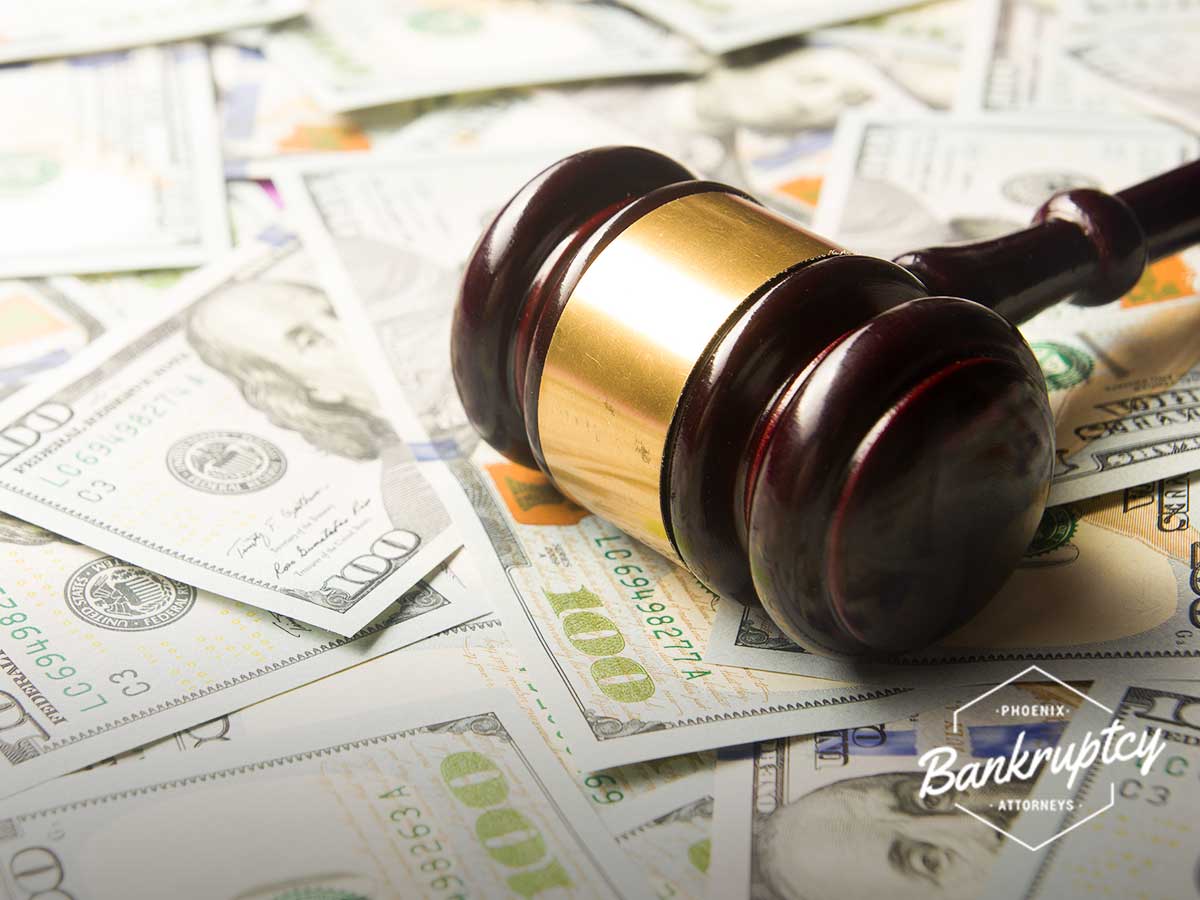
What Filing Chapter 7 Bankruptcy in Phoenix CAN Do
Discharge Medical Debt
Medical and Dr. Bills are the top reason that people in the United States seek to file bankruptcy. Medical expenses, including doctor’s office visits, hospital bills, dental bills, and more, are typically discharged without much hassle in a Chapter 7 bankruptcy. The bills from a serious illness or injury can easily put you thousands of dollars in debt. One thing to keep in mind is that some of your doctors may decline to continue treating you if you discharge their bills in bankruptcy. However, an emergency room may not turn you away due to a bankruptcy filing.
Eliminate Credit Card Debt
Credit card debt is another top reason that people file bankruptcy. For the most part, all credit card debt can be discharged in bankruptcy. There will be limits on how much you can spend on your credit card in the timeframe leading up to your bankruptcy. You won’t be able to use credit cards during your case and will need to apply for new credit cards after discharge. After your bankruptcy is discharged, you will receive offers for new credit cards, which can help you rebuild your credit score.
Immediately Stop a Wage Garnishment, Repossession, Or Foreclosure
When your petition is filed, it triggers the Automatic Stay. The Automatic Stay freezes your assets and prevents your creditors from aggressive collection methods. It can stop wage garnishments, foreclosures, repossessions, utility shutoffs, evictions (at certain stages), and bank levies. The Automatic Stay remains in effect until your case is discharged, usually 4 to 6 months, or dismissed.
Allow You To Keep Some Assets
You will use asset value limits, known as exemptions, to protect your property from seizure for the bankruptcy estate. These exemptions vary by state, and some states allow you to use federal exemptions as well. As long as your assets are protected by appropriate exemptions, they will be safe when you declare Chapter 7 bankruptcy.
Abandon & Surrender Leases & Other Payments You Can’t Afford
Whether it’s a rental lease in a pricy apartment that you hate, or an auto loan with a balance of thousands of dollars and the same in upcoming mechanic bills, Chapter 7 bankruptcy is your opportunity to get rid of these obligations. Lowering your expenses will help you avoid recreating the situation that brought you to bankruptcy in the first place.
Help You Rebuild a Stronger Credit History
There is no doubt that a bankruptcy isn’t a positive mark on a credit report. A Chapter 7 bankruptcy will remain on your credit for 10 years, and you won’t be able to buy a new home for 2 years. However, most people who file Chapter 7 bankruptcy don’t have a stellar credit history before filing. Bankruptcy may have a negative impact on your credit score, but it could be small, or even positive. Opening new lines of credit and making timely payments after your bankruptcy discharge will help you build a new, stronger credit history.
Drawbacks Of Filing Chapter 7 In Phoenix, What It CAN’T Do
Eliminate Domestic Obligations: Child Support & Spousal Maintenance
If the majority of your debt issue arises from domestic obligations, e.g., spousal maintenance and child support, Chapter 7 bankruptcy may not be a good course of action for you. These debts won’t be discharged in bankruptcy. Not only that, but the Automatic Stay in a Chapter 7 won’t stop wage garnishments from these debts either. However, if your domestic obligation debt problem is aggravated by significant unsecured debts, Chapter 7 could help you make progress on your domestic obligations by eliminating your other debt obligations.
“Cram Down” Debts From Secondary Loans
Chapter 13 allows debtors to discharge a second mortgage or similar loan if they owe more on the property than its value. For example, This invaluable benefit is only available in Chapter 13, and not in Chapter 7 bankruptcy. However, you can discharge deficiency mortgage balances in Chapter 7 bankruptcy after a foreclosure.
Discharge Student Loans (Most Cases)
Most bankruptcy courts use the Brunner Test when deciding whether or not to discharge a debtor’s student loans. The three factors of the Brunner test are: (1) in your current situation, you would not be able to maintain a minimal standard of living if forced to repay the loan; (2) your current situation is likely to persist; and (3) you made good faith efforts to repay the loan. This test is far stricter than it may sound to some.
Clear Debt Arising From Fraud
Taxes and other debts that come from a fraudulent system won’t be discharged in bankruptcy. Some of your credit cards may also be deemed “fraudulent’ if you incur too much too soon before your bankruptcy- your creditors may be able to prove that you made purchases with the intention to never repay them and discharge them in bankruptcy. You should check with your bankruptcy attorney about the dischargeability of any fraud-related debts.
Eliminate Some Taxes
Non-fraudulent tax debts can only be discharged in Chapter 7 bankruptcy if they meet a few requirements. The taxes must have been due for 3 years, filed for 2 years, and assessed at least 240 days before the petition is filed. Your taxes can only be discharged in Chapter 7 bankruptcy if all of these are met.
Additional Bankruptcy Filing Questions? Contact Our Phoenix Bankruptcy Law Firm
Do you have more questions about the extent of what filing Chapter 7 bankruptcy in Phoenix can do? Contact us today to schedule your free consultation with one of our expert bankruptcy lawyers. This is also your opportunity to receive a free quote, and check your qualification for our payment plans that start as low as $0 down! Our Phoenix Bankruptcy Attorneys can get you started with your bankruptcy with no money out of your pocket.
PHOENIX BANKRUPTCY ATTORNEYS

